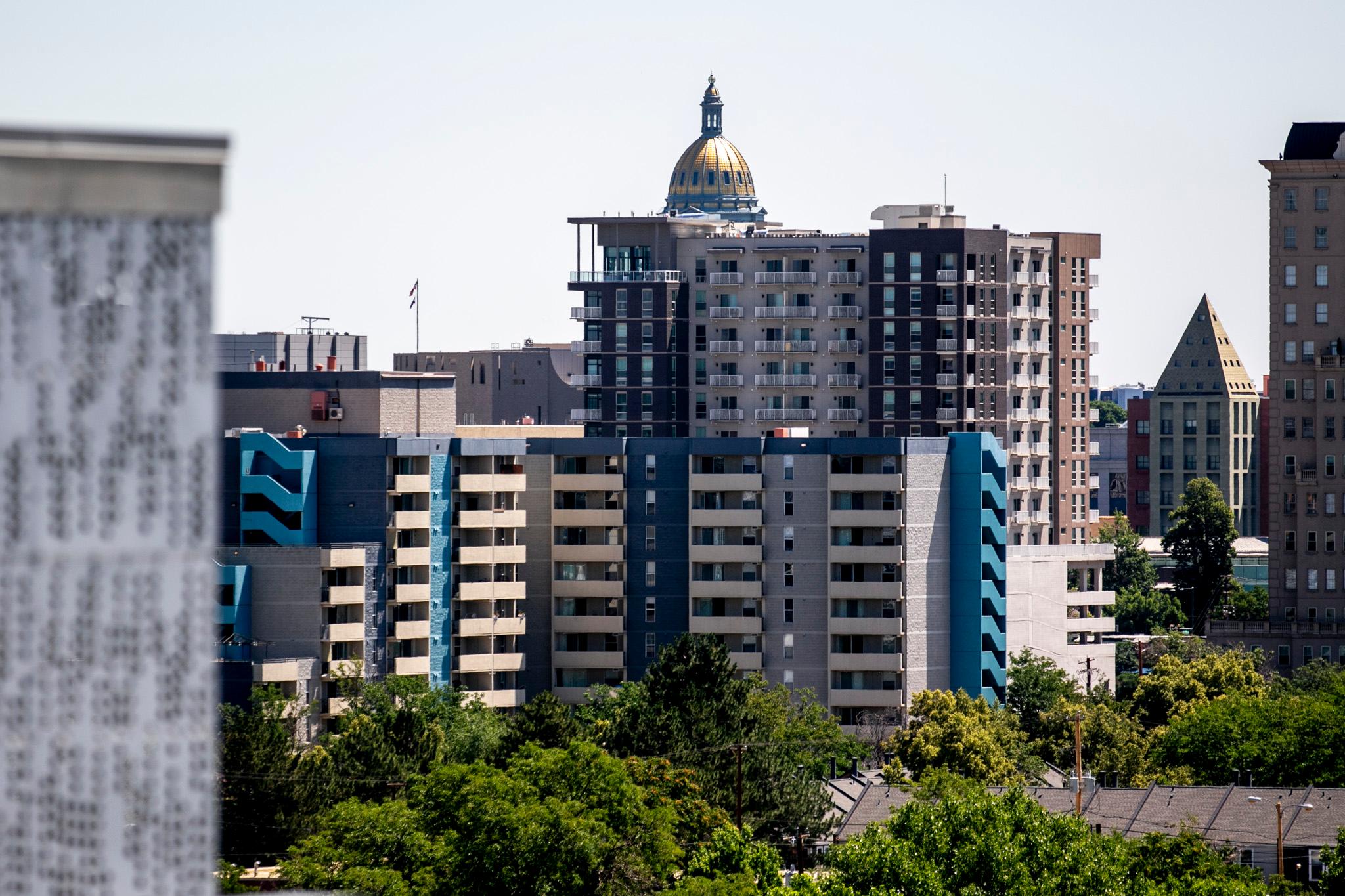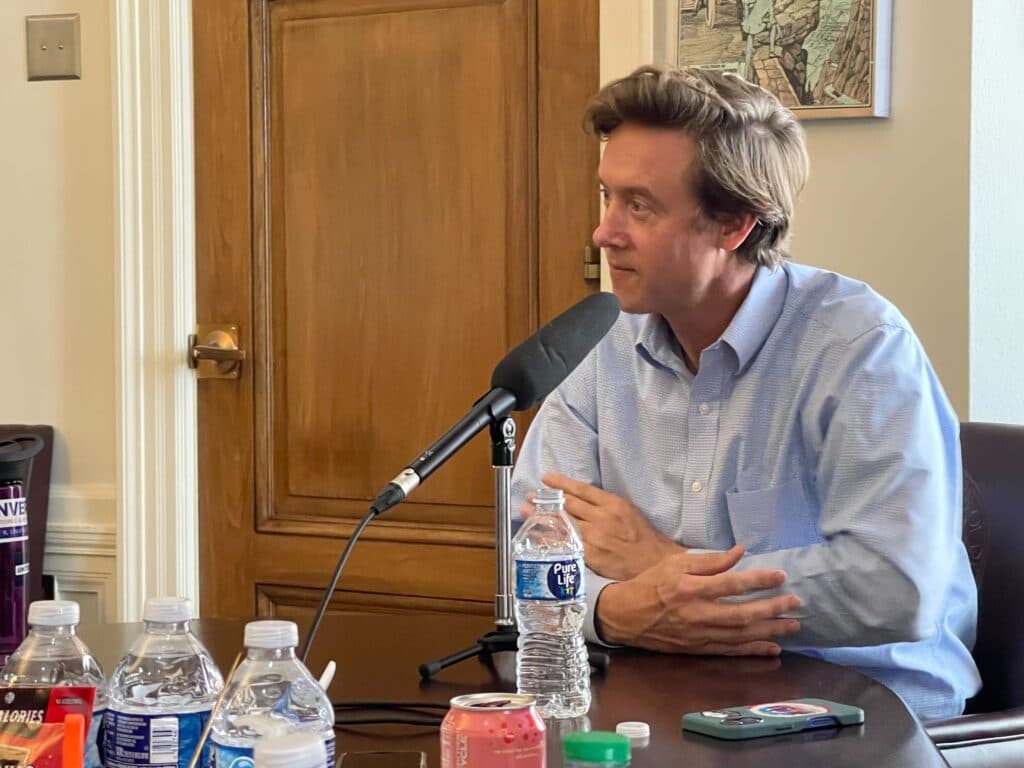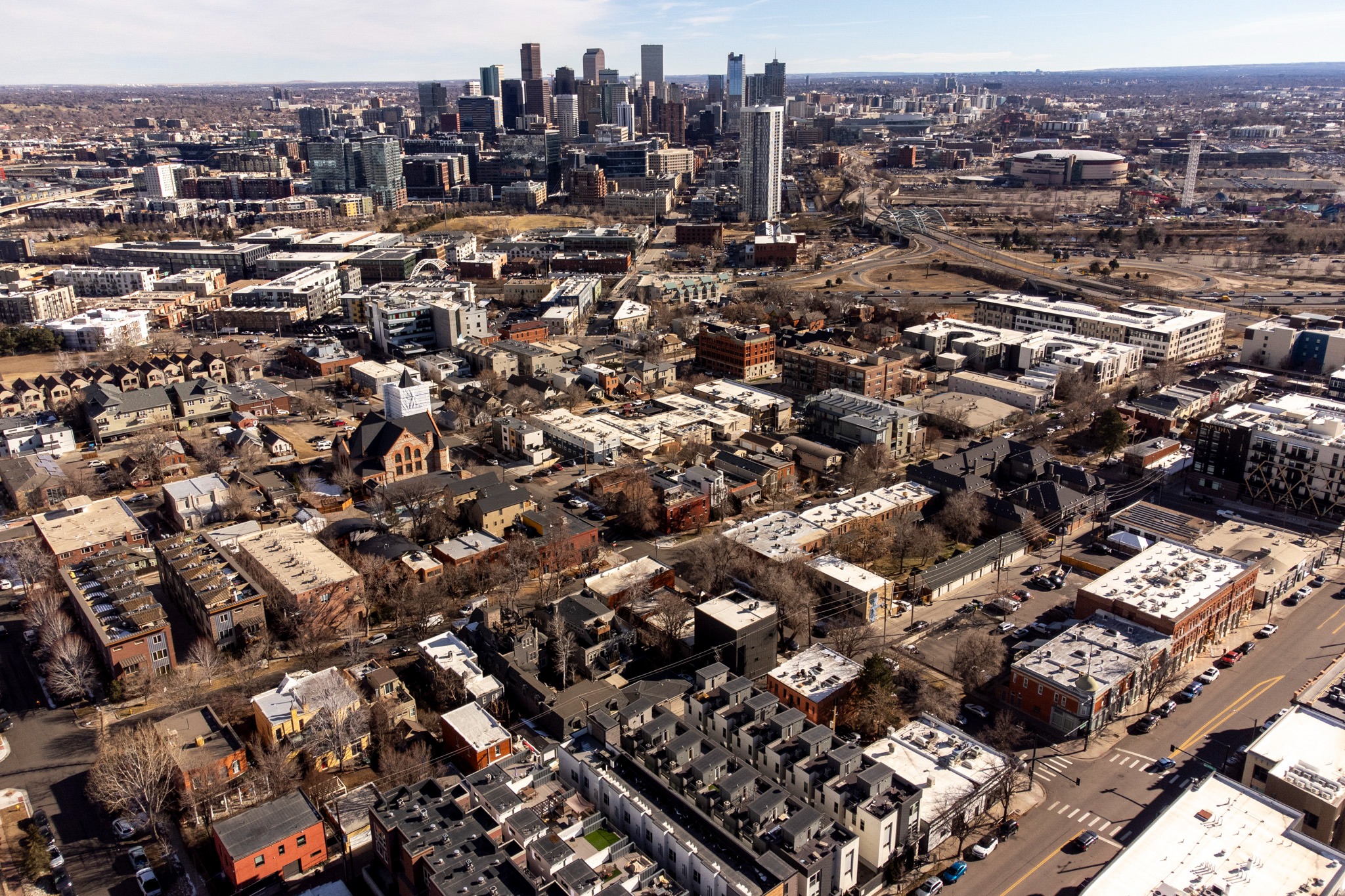
Denver Mayor Mike Johnston is dealing with two very different fiscal challenges.
The first is cutting some $250 million from the city’s current and upcoming budgets. The second is convincing voters to approve nearly $1 billion in debt for a package of big projects across the city.
That contrast has generated plenty of questions about how the city can afford a big spending package, even as it struggles with its finances. Here are answers for a few of the biggest ones.
What is Vibrant Denver?
Vibrant Denver is a proposal for the city to issue general obligation bonds, which are a kind of long-term debt. This fall, the city will ask voters to approve the proposed spending package. Voters will be asked to approve five different packages, each with a different set of projects.
If voters approve all the packages, the city would take on $950 million of long-term debt to pay for everything from the new Park Hill Park to rec centers, bridge maintenance, road projects and more around the city.

What are the city’s fiscal problems?
At the same time, it’s proposing Vibrant Denver, Mayor Mike Johnston’s administration is preparing for mass layoffs and spending cuts. The local government is spending more than it's taking in — to the tune of $250 million over this year and next year.
Johnston has blamed the shortfall on a shaky economy, which has meant the city’s revenues are growing slowly — or not at all.
“We projected this to be a bad year at 2.5 percent growth, and it actually turned out to be zero percent growth, so it's totally flat on revenue,” Johnston said in a recent interview with Ryan Warner, senior host of CPR News’ Colorado Matters. “So that is a dramatic, dramatic change in sales tax, and you're seeing that in cities across the country.”
At the same time, city spending is growing for everything from policing to housing and homelessness, and the city is also worried about losing federal funding for some programs.
How can the city afford debt while it’s in a budget crisis?
That’s the big question. And, indeed, some people would argue that it’s irresponsible to take on more costs at a moment like this.
City officials argue that the debt spending is both prudent and necessary.
First, there’s the question of how the city can afford it. The city would pay off this new debt over decades. Each year, it would have to spend millions of dollars on the principal and the interest.
The money for that debt service would come from a very specific source. Denver property owners pay a certain amount of property taxes — 6.5 mills — into a special fund that can only be used for paying off general obligation debt, according to city officials.
That’s money that can be spent on servicing new debt or paying down current debt. But it can’t be transferred for other purposes — like paying city employees or funding services.
Johnston argues that the new spending could actually boost the economy and help with long-term budget problems.
“You actually have to try to drive growth. That brings the economy back. And for us, that does mean creating jobs and investing in projects that drive economic growth. A bond does that. This will create almost 10,000 jobs,” Johnston told Warner.
How much debt does the city have already?
This question came from Denverite reader Ivan Gertler, a 78-year-old resident of south-central Denver.
In terms of general obligation bonds, the city has about $1 billion in existing debt, according to its latest comprehensive financial report. That comes from earlier bond packages, like Elevate Denver and RISE Denver, that voters approved in earlier years.
How long will it take the city to pay off its existing debt?
Right now, the city is paying roughly $160 million per year in general obligation debt service. But that number will start dropping next year as old debt gets paid off.
By 2031, the city would owe about $75 million per year on its current general obligation bond debt. Those bonds should be totally paid off in 2042.
If voters approve new bonds, it would likely take into the late 2040s to pay them off.
How much debt can the city actually afford?
The Vibrant Denver proposal would put $950 million of new debt on the books, plus an additional about $1 billion of interest. That is about as much new debt as the city can afford right now, city staff said.
What would Vibrant Denver cost taxpayers?
Vibrant Denver would not raise property tax rates.
It would continue to rely on the existing 6.5 mills of property taxes that the city uses to pay its current general obligation debt. In all, the owner of a $500,000 home pays about $200 a year into that debt service fund.
What happens if Denver voters reject Vibrant Denver?
If voters reject Vibrant Denver, the city would be left with unused revenues. It would instead spend that money to pay down its current debt faster, city staff said. The city would likely ask voters to approve a different debt package with a different mix of projects in the future.
“We still have about a 20-year time horizon to pay off debt the city has from other issuances, and all that would happen is you wouldn't add new debt, so you might pay off that current debt faster,” Johnston said.

If voters continuously rejected bond proposals, the city would eventually pay off all its debt faster and be left with unused tax revenues.
At that point, the city would consider lowering property taxes, said Laura Swartz, a spokesperson for the city finance department. But she warned that it would mean that many of the city’s critical infrastructure maintenance and construction needs would go unmet for many years.
How likely is it that Vibrant Denver fails?
We haven’t seen any polling on the bond package. But, historically, Denver voters have approved the vast majority of bond proposals.
Denver voters approved debt packages in 1989, 1990, 1998, 1999, 2002, 2003, 2005, 2007, 2017 and 2021, to name a few.
However, voters in other municipalities have been more skeptical of government spending. In Colorado Springs, a proposal to put $350 million into school facilities failed by just 11 votes back in 2021. In Cañon City, voters turned down funding for a new municipal pool last year. And voters may be in a thrifty mood given uncertainty in the economy and the city budget.
It’s also possible that voters will approve some parts of the spending package while rejecting others — remember, it’s broken up into five separate questions on the ballot. In 2021, voters approved every part of RISE Denver except for Mayor Michael Hancock's proposal for a new arena.
Here’s what bonds Denver voters will decide on the ballot in November:
- Transportation and mobility, including rebuilds of major road bridges, for about $441 million
- City facilities, such as libraries, cultural centers and a training center for emergency responders, for about $244 million
- Parks and recreation, including new parks and facility upgrades, for about $175 million
- Housing and shelter, including subsidy programs, facility upgrades and funding for affordable housing, for about $59 million
- Health and human services, including new and expanded facilities, for about $30 million
The Denver City Council voted this week with strong majorities to put the questions on the ballot, although some members dissented on individual parts of the package.
Election Day is Nov. 4.

Colorado Wonders
This story is part of our Colorado Wonders series, where we answer your burning questions about Colorado. Curious about something? Go to our Colorado Wonders page to ask your question or view other questions we've answered.







